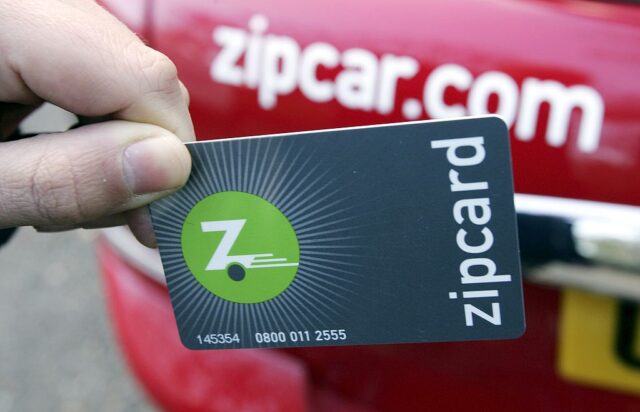Zipcar’s rep declined to specify how many people were affected by the outage.
A warning against total app reliance
Zipcar’s app problems have not only cost it money but also traumatized some users who may think twice before using Zipcar again. The convenience of using apps to control physical products only exists if said apps are functioning and prepared for high-volume time periods, such as Thanksgiving weekend.
Despite Zipcar’s claims of a “small percentage” of users being affected, the company’s customer support system seemed overwhelmed. Long wait times coupled with misinformation regarding things like fees make already perturbed customers feel more deserted.
Those are the pitfalls of completely relying on apps for basic functionality. There was a time when Zipcar members automatically received physical “Zipcards” for opening doors. Now, they’re not really advertised, and users have to request one.

A Zipcard. Credit: Getty
Zipcars also used to include keys inside of locked cars more frequently. Reducing these physical aspects may have saved the company money but effectively put all of Zipcar’s eggs in one basket.
Nightmarish app problems like the one Zipcar experienced can be a deal-breaker. Just look at Sonos, whose botched app update is costing it millions. Further, turning something like car rentals into a virtually app-only service is a risky endeavor that can quickly overcomplicate simple tasks. Some New Zealand gas stations were out of luck earlier this year, for example, when a Leap Day glitch caused payment processing software to stop working. Gas stations that needed apps for payments weren’t able to make sales, and drivers were inconvenienced.
Apps can simplify and streamline while delivering ingenuity. But that doesn’t mean traditional, app-free measures should be eliminated as backups.